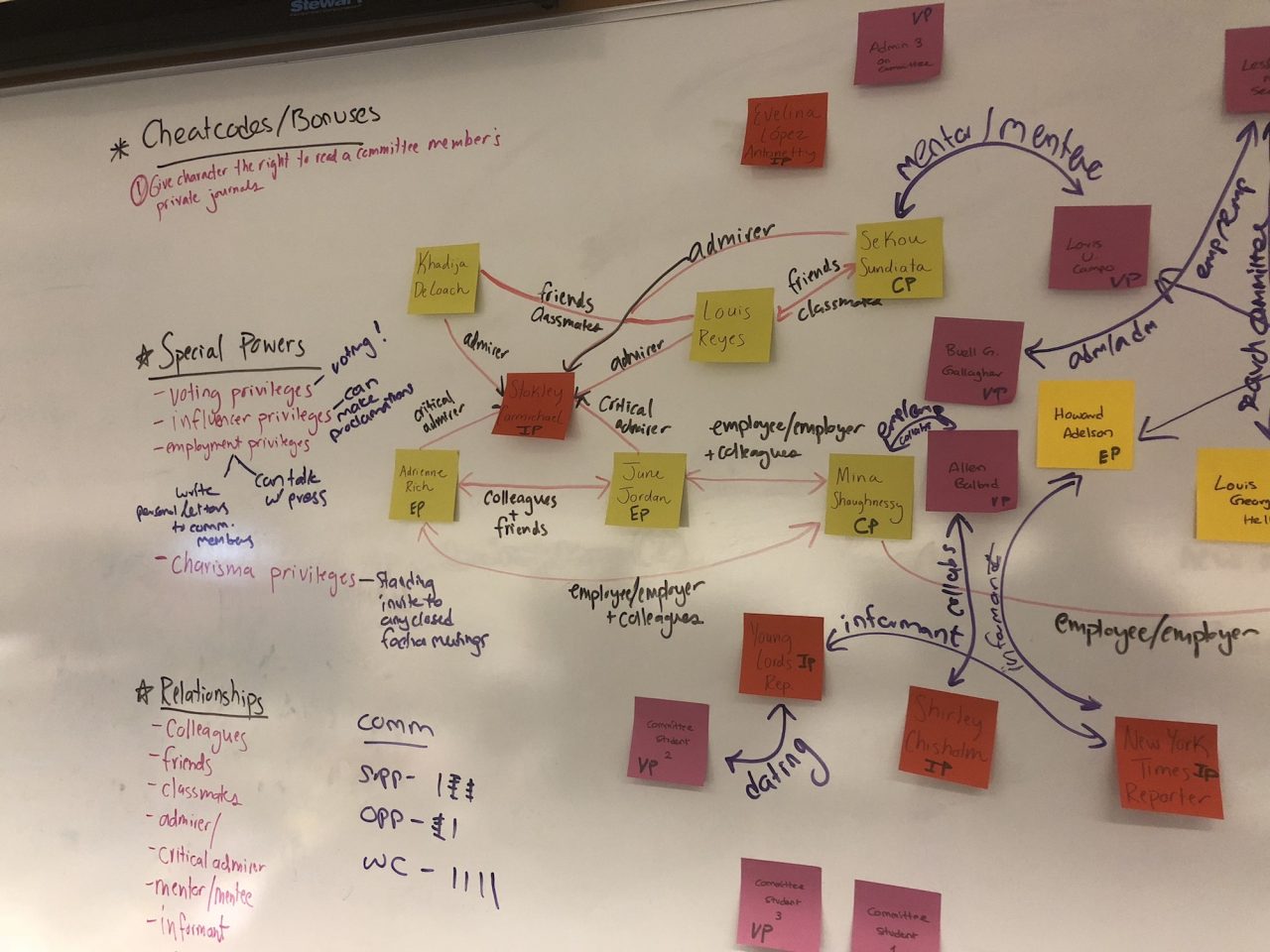As we’ve been writing our character descriptions, we’ve started to think about how these characters are going to actually interact with one another. It’s not really enough to just have the final goal of “recommending” or “not recommending” the passage of open admissions. We want students to have stuff to do every day.
We’ve started to visualize the web of connections between the characters as we currently understand them. And then we started to think about how factions, voting members, and non-voting / non-faction players would actually spend their time every day in class.
We wanted to make sure that players between factions (and especially non-voting / non-faction players) would have enough to do, but would also have meaningful reasons to interact with other people. This gave us an idea: wouldn’t it be cool if certain players had certain kinds of special advantages or “powers” that would give them the chance to interrupt or influence business as usual, and that would encourage players to interact?
So far, we have developed 4 types of these powers:
1) Voting Power: This one is pretty self-explanatory. It’s the power…to vote! This can only be given to the voting committee.
2) Influencer Power: Players with this power can disrupt what happens during a Town Hall meeting. If there’s a person giving a speech, they can disrupt the speech with a protest. If there’s a faction that is distributing a manifesto, they can decide who should not have it. It’s important for people with Influencer Power to use this power sparingly and wisely though: the members of the voting committee might start to feel annoyed if they use it too much.
3) Employment Protection Power: This power is given to tenured professors or professors who have famous reputations as poets (for example). This power allows a player to talk to the press without penalty. They can also write letters to try to influence individual committee members.
4) Charisma Power: Someone with charisma power is allowed to sit in on (otherwise closed) faction meetings and to “spy” for their faction or the faction that they’re leaning toward supporting.
We’re still deciding if we want to limit the amount of times that someone with each of these powers is allowed to do each of these things, and if so, how we could help the game master (professor) to check.
We also decided that we might try to make various “relationships” between characters that limit or enhance how they can interact with one another. So far, the relationship types we’ve defined are:
1) Colleagues
2) Friends
3) Classmates
4) Boss / Employee
5) Admirer or Critical Admirer / Admiree
6) Mentor / Mentee
7) Informant
8) Dating
We haven’t yet decided what these relationships will mean and how they will influence interactions, but we are hopeful that we can flesh this out a bit more as we’re writing character descriptions.
Stay tuned!
